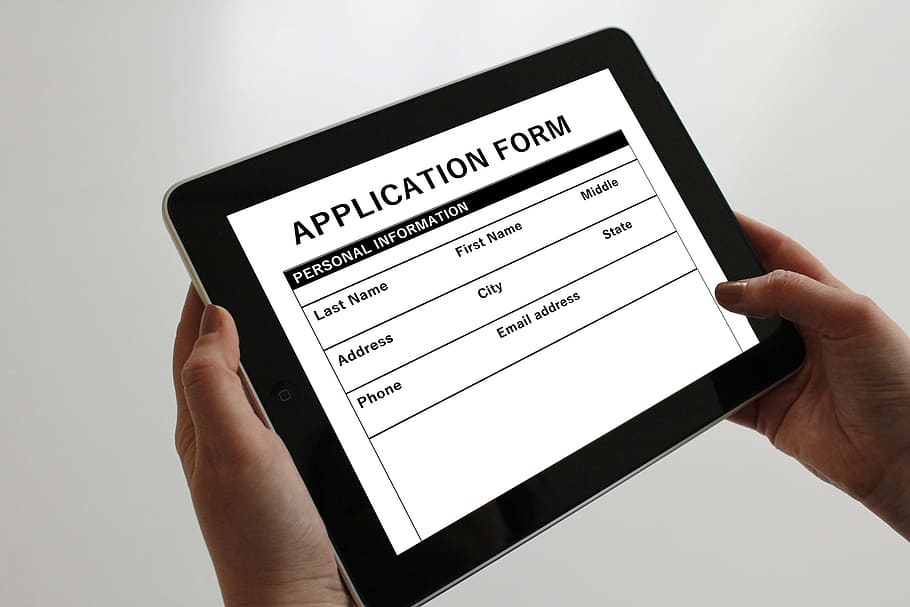Quantitative developers are important in the world of finance, where technology and statistics intertwine. So, if you love finance and coding, this job must be your right path.
But how to become a quantitative developer? I will show you the steps to dive into the financial industry with your computer skills. So let’s read on to discover!
Who Is A Quantitative Developer?
A quantitative developer is known as a software developer who only works in investment and financial companies. These developers use their computer skills and knowledge in finance to develop app solutions.
As you can see, this job is a combination of computer science, finance, and mathematics. The quantitative developers aim to build advanced trading software and give some useful solutions.
These quantitative developers oversee the complete SDLC (Software Development Life Cycle). This task involves doing market research and building the application. They also maintain the software after development, too.

Types of Quant Developers
There are three types of quantitative developers:
Front-office
If you choose this career path, you will work closely with quant analysts to develop and optimize financial models. You need to get the prototype code from one coding language first, then transform it into another.
As the name suggests, front-office quant developers interact with clients directly. They can deliver customized software based on client requirements.
Middle-office
You will work on large systems as a middle-office developer. Your job is to develop the trading infrastructure based on which the traders or quant analysts can execute their models.
Back-office
The last option is to work as a back-office developer. You will validate the models and manage risks on them. To do it, you need analytical skills and a strong knowledge background.
How To Become A Quantitative Developer
This job involves different aspects. While you must be a good coder, you also need to handle financial issues properly. If you want to become a quantitative developer, take the following six steps.
1. Achieve Educational Qualification
Earning a bachelor’s degree in computer science or mathematics would be best. However, any related technical areas can still work. The key is to learn quant concepts and how to use them. So, you need to focus on these things:
Quant models
As a quant developer, you will work with many quant models. The most popular options for quant development are:
- Consolidation model: Your business may have different units to handle. In this case, you can use this model to combine them. It will then be easier for management.
- Option pricing model: The theories behind this model are binomial tree and Black-Scholes. It uses prices for variables to help you value different options.
- Forecasting model: This model focuses on predicting stock patterns. Based on that, you can make investment decisions.
- DCF (Discounted Cash Flow) model: You need this model to calculate the net and future values.
- Merger model: You can compute the merger model with the core merging firms.
Programming
Programming is an essential skill for a quant developer. You should learn C++ to create financial models. This programming language also helps you determine the prices of derivatives. Meanwhile, Python and Java are suitable for high-speed trading algorithms.
Learn some analysis tools, too. SAS, R, and Matlab will be reliable partners for every quantitative developer. If you are interested in financial and trading models, you can be a self-taught quant developer. Programming is hard for everyone, but you can nail it with practice.
Quant tools
Quant development is tricky, but don’t worry! Even after years of working in this industry, I have problems sometimes. So, I highly recommend these quant tools to assist with your work:
- QuantLib: This open-source library is helpful for quant modeling and risk management. It’s written in C++.
- JQuantLib: Like QuantLib, this library provides tools for quant developers to build functional software. However, it’s Java.
- Maygard: Maygard is an excellent choice for evaluating price and stock movements. You can use it to build business apps with confidence.
- Rosetta code: This programming website offers common algorithms for quant development. Hundreds of solutions here will help you speed up your working process.
- OpenGamma: Risk management is crucial, and that’s when you need OpenGamma to analyze both market and operational risks.
Quant software
Aside from the tools above, you can also use other quant software options at work. I have tried the following, and they all work well:
- Quantopian: This software has tools and data that help you create investment algorithms in Python.
- Quantconnect: Many quant developers worldwide access Quantconnect to build quant trading strategies. The best part is that it can support many markets, such as options, equities, and cryptocurrencies.
- Quantmod: This R package offers a solid framework for quant financial modeling. Its fast prototyping environment will make modering easier, as you don’t have to deal with repetitive workflow problems around the data.
- Quandl: This software aims to make data easier to find and use. Thus, it will finally shorten the time needed to process data when developing software.

2. Earn Certifications
Learning is never enough for those who want to become a quantitative developer. So, aside from the knowledge you get from school, consider obtaining certifications. They help you focus on certain aspects of quant development.
CQD
CQD is suitable for people who know a lot about programming and finance. Thus, you need to show your knowledge in these two fields first.
This certification takes about six months. You will start by applying and showcasing your qualifications. Once approved, you can get the materials from the IAQF and take the exam. The cost for it is around $500.
The exam has practical and theoretical aspects of quant finance. It covers many topics, including financial markets, risk management, and statistical analysis.
CFMVA
This certification requires you to take an online course that lasts eight to ten weeks. During the course, you can learn about financial modeling. It also teaches you to read financial statements and make forecasts after that.
After completing the course, you will take an exam to get the certification. It costs somewhere between $1,000 and $2,000.
CMT
This test takes the longest time. You need two to four years to complete all three levels. But once you’ve done it, you can use technical analysis in your job efficiently.
The first level focuses on the basics of technical analysis. Then, moving to the second level, you can get into more complex topics, like risk management or trend identification. And finally, the highest level will teach you portfolio management techniques.
FRM
If you prioritize financial risk management, then choose this certification. It helps you deal with risks in banking, insurance, and other financial activities. Many finance companies want their quant developers to have an FRM.
This certification takes about six months. You can study in groups or take an online class. Once you are ready, you can take the final exam, which costs $650 to $750.

3. Hone Your Skills
Knowledge is valuable, and you may have gained a lot after taking those courses. But don’t forget to hone your skills.
Technical and soft skills are all critical for your job. They help you handle your tasks effectively and work well with your colleagues.
Try to develop these skills as you study. They will make you an outstanding candidate for the quant developer position.
Software development
You will be a developer. Thus, software development must be one of the first skills to work on.
This skill is necessary in finance and other industries, especially for companies that need automation. And when you become proficient in software development, you can shine more.
Machine learning
Machine learning will also assist you a lot. For example, you can use machine learning techniques like neural networks or logistic regression in finance.
This field is developing strongly these days. So learn it! Then, you can show your potential employers that you always stay up to date.
Programming skills
Programming must be the most crucial skill for a quantitative developer. In the future, you will work with Python, Java, or C++ every day.
Thus, practice with different programming languages now. You can take online classes to improve your coding skills.
Mathematical skills
You also need good mathematical skills to analyze the data and market trends. Then, you can develop forecast models and apps based on what you have analyzed.
Communication skills
You will work with quant analysts and other departments. In this case, good communication skills can help you boost efficiency. Ultimately, you all can contribute to the quant development’s success.

4. Take An Internship
Now you have skills and knowledge. But they are not enough to become a good quantitative developer. What you lack is experience, but how can you get it?
The best idea is to take an internship. When working as an intern, you can put your knowledge into practice. It can differ from what you imagine, and I bet you will have interesting lessons.
Moreover, you can get to know other quant experts in your company. They will teach you real-world lessons about quant development.

5. Update Your Resume
You show the resume to your potential employers when applying for a job. It includes everything about you and proves you are the right fit for that company.
So, try to make it impressive. You should highlight your skills and education. They are the strongest proof that you have the potential.
Also, talk about your experience. You can mention what you did as an intern and what you learned from it.
6. Apply For The Job
Finally, apply for a quant developer job. You can visit job openings on job search websites or ask your friends.
Once you find any, read the job description carefully. Then, tailor your resume according to each job. This small adjustment shows that you are serious about every job opportunity.

What Does A Quantitative Developer Do?
As a quantitative developer, you will do these tasks every day:
- Create large-scale programs to produce analytics and show results in a straightforward visualization.
- Improve proprietary algorithms and models.
- Explain technical concepts and business strategies to non-technical users.
- Prepare and test data, then build models based on the chosen rules and practices.
- Keep up with the newest technologies in the industry and apply them to your job.
Where Do Quant Developers Work?
Quantitative developers can work in different settings and industries, but banks and financial companies need them the most. Hedge funds and trading businesses can also be their destination.
These professionals analyze market data. Then, they build models to assist those organizations with their operations.

Qualities Of A Good Quant Developer
You can tell that you are a good quant developer if:
- Your problem-solving skills are outstanding.
- You are good at statistics and math.
- You have strong coding skills in languages like Java, C++, or Python.
- Continuous learning doesn’t matter to you; you like staying updated on tech and finance trends.
FAQs
1. How much does a quantitative developer earn?
In September 2023, an average quantitative developer can earn about $185,190 annually. The exact answer depends on their experience, location, and the company they work for.
2. Is quantitative developer the right job for you?
It depends. If you like solving problems, have strong analytical thinking skills, and love finance, this job will suit you. On the other hand, if you don’t enjoy handling complicated systems, then consider another career path.
3. Is it hard to become a quantitative developer?
Yes. To work in this role, you need to study coding and finance a lot. It also requires many technical and soft skills.
4. What is the salary of a C++ quantitative developer?
If you focus on C++ when working as a quantitative developer, you can earn about $75,000.
Final Thoughts
You need to learn how to code first. Then, familiarize yourself with quant models and software. When you are ready, take your first job as an intern, and your experience will help you stand out from the candidates.
So, start to master your skills and expand your knowledge today! A promising career is waiting for you!
